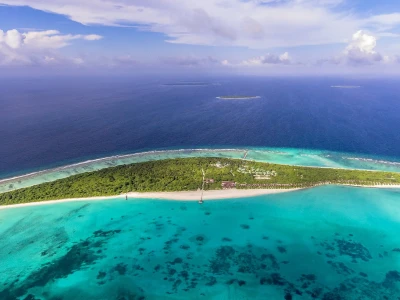
Increased taxes lead to halt in cruise line arrivals to Maldives
Under a regulation introduced during the previous government, cruise tourists are required to pay TGST starting from the date of their arrival.
Cruise liners have stopped arriving in the Maldives due to increased costs stemming from the imposition of Tourism Goods and Services Tax (TGST) on tourists. This development has significantly impacted the operations of agents facilitating cruise line visits to the Maldives.
Under a regulation introduced during the previous government, cruise tourists are required to pay TGST starting from the date of their arrival. Cruise operators must remit 16% of the total package sales price, including Maldivian destinations, as GST through local agents.
Mohamed Firaq, CEO of Inner Maldives and an agent for several cruise lines, stated that the Maldives has become a more expensive destination compared to competitors. Providing an example, he said:
-
A cruise liner carrying 1,500 tourists pays approximately $80,000 in taxes to dock in the Maldives.
-
In comparison, docking fees in Dubai cost $28,000, while in Sri Lanka, it costs $18,000.
“Cruise lines are businesses aiming to minimise expenses. If the Maldives is significantly more expensive, cruise operators avoid it as a destination,” Firaq said.
In previous years, 20 to 30 cruise liners visited the Maldives annually, particularly during the winter season. However, no arrivals are anticipated this year.
Firaq noted that neighbouring countries, including Sri Lanka and India, are benefiting from the situation. The port of Hambantota in Sri Lanka is being utilised by cruise lines, while Cochin in India has seen increased activity.
The Maldives has also been criticised for high docking fees and the lack of quality services provided to cruise liners, which are reportedly better and more reasonably priced in neighbouring countries.
“This combination of high costs and inadequate services has made the Maldives less attractive for cruise lines,” Firaq said.
He attributed the situation to confusion when drafting the TGST rules. The initial concern was to exempt high-end yachts from TGST, but cruise liners were inadvertently included in the same regulations.
Firag emphasised the importance of amending the rules before February 2025, as cruise itineraries for the following year are typically finalised by then.
“There is no objection to taxation, but it must be reasonable, reflecting the realities of the cruise industry and competition from other destinations,” he said.
Related
Related

All Maldives resorts except 1 register under new forex rules

Committee rejects Green Tax hike exemption for small guesthouses

PNC MPs call for review of proposed tourism tax hikes

